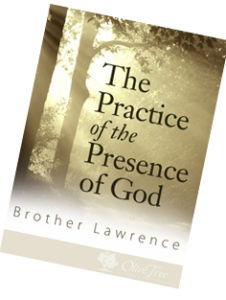Back to series


Recommended Reading:

Waiting on the Lord While Unemployed
Click here to open a Print - Friendly PDF
The Doer’s ListsIt seems as if I’ve always been a doer. Getting things done, reaching goals, and achieving results is a very real part of my wiring diagram. That “performance” paradigm caused me to always maintain four lists: office, home, hobbies, and church. One day a significant change came to one of my lists. It was August 22, 1989. At 11:00 a.m. the president of our company walked into my office and quickly closed the door (always an ominous sign!). He matter-of-factly explained to me that not only was business soft (which I knew) but that the sudden loss of a significant government defense contract meant that the company had to make major cutbacks. “Nothing personal,” he said, “but we can no longer afford a director of corporate development.” The ChallengeWith unexpected time freed up, our family decided to take a week to visit family and friends in Grand Rapids, Michigan. On the way we stopped by to see longtime friends in Ann Arbor and East Lansing. In Ann Arbor my first spiritual mentor, Bill, suggested that we get up early the next morning to pray over my new situation. Bill started that time by asking, “Tell me what you’re thinking.” I launched into a soliloquy of possibilities. When my monologue was over, I asked Bill for his reactions. His response surprised me. Bill observed that he had been around businessmen for thirty years. To him they all seemed to be cut from the same cloth; wired to be doers preferring to function with plates overflowing with commitments and demands. Take one plate away, he observed, and they would quickly try to find a new plate and fill it up as fast as possible. “Doug,” he went on to observe, “if I could desire one thing for you right now, it would be this, take sixty days and do nothing but sit at the feet of Jesus.” Bill’s observations caught me by surprise. I couldn’t argue with it. But I wasn’t convinced. The Challenge Echo
Hearing the same desire twice within twenty-four hours forced me to accept this as coming from the Lord. But there was a slight problem. I had no idea what it meant to “just be before the Lord”! What was my task? More important, what was the goal? And what would I do? I knew I couldn’t duck this sixty-days-before-the-Lord challenge; the leading from the Spirit was too clear. But how would it be perceived by others? I had been given four months of severance pay. Could I take half of that time and literally do “nothing”? Would my wife think I had lost my marbles? Would my friends and neighbors think I was being irresponsible? Would anyone at church even understand? More fundamentally, could I even do it? A few weeks later, I was at an evening church service. It started with a trio of praise choruses. Unbeknownst to me, the third one, “This One Thing Is Needful,” was going to speak to me. What did the prayer express as most needful? “That I sit at your feet and pour out my love.”1 There was the challenge again, this time in song. But it was what you do when you sit at the Master’s feet that hit me hardest! “Pour out my love”? How do you do that? I can imagine how a woman might respond, the nature of the man-woman relationship being what it is. But a man “pouring out his love” to the Father and His Son—this might require significant breaking of new ground! Can’t Get Away from Doing Something!At least now the objective was clear. But I still wasn’t sure how to go about the process. Mark suggested using a workbook called Space for God that was subtitled Study and Practice of Spirituality and Prayer. That did seem like what I needed! Mark said the workbook was the culmination of the author having spent a year’s sabbatical with Henri Nouwen at Yale studying a Reformed perspective on meditation and contemplation. So I ordered a copy. One week later it arrived. At least now I had something to do! The thesis of Space for God is self-evident. Many of us are so busy “doing,” becoming so preoccupied with the externals of our lives, that we neglect the interior. So absorbed with frenetic activity that we end up coasting through life with an “empty tank,” while deluding ourselves that we are mostly full. And the one thing that is absolutely “needful” becomes the one thing that we (almost) never do—sitting at the feet of the Father and pouring out our love. Creating New SpaceHaving no prior concept of what one does when sitting “at the foot of the Cross,” I started with what I knew. I set aside several hours a day to read and study the Scriptures, as well as ponder spiritual and devotional books. After a couple of hours of meditating on the Scriptures, I would spend time in Space for God, taking a leisurely stroll through each of the pages exploring what meditating on God’s Word and contemplating the Lord meant. I discovered it takes time for transformational truth apprehended by the mind to travel fifteen inches south to where it can (start to) marinate the heart.
Since the book contained many marvelous quotations from numerous classic devotional sources, I began to “follow the footnotes.” This led to reading other devotional classics, discovering the Desert Fathers, the Russian Orthodox mystics, revisiting the Reformers, etc. Basically I tried to emulate “Be still before the Lord and wait patiently for him” (Ps. 37:7).2 At first, setting aside that much time each day was not easy. My mind often wandered and “being still” was hard—at times seemingly impossible. But having at least gotten underway, I found the iceberg of habitual “doing” beginning to melt and the essential spiritual truths of “being” slowly beginning to sink in. The steady stream of “2 x 4s” filled with ideas and truth that hit me over the head prompted me to document the many meaningful quotes I was encountering. The Unemployment Journal
|
|||
| Notes: 1. Kirk Dearman, Maranatha Music Praise Chorus Book. 2. Scripture quotations are taken from the New International Version. |
|||

Doug Greenwold
TeacherDoug Greenwold, Teacher, (1942 - 2019) was a friend of CSLI for many years. He was the Senior Teaching Fellow at Preserving Bible Times, a non-profit organization dedicated to preserving and presenting biblical truth through contextual restoration of the biblical record. He received his BS, MS, and MBA from the University of Michigan, where he also played basketball. After serving for thirty-two years in the business world, he retired in 1999 to teach the Bible in context. Doug wrote seven books and many articles, including Making Disciples Jesus’ Way: Wisdom We Have Missed. When not speaking and writing, Doug led trips to Israel and was a frequent interview guest on Christian radio.

Recommended Reading:
The Practice of the Presence of God, by Brother Lawrence
Publisher: Whitaker House; New Abridged edition (June 1, 1982)
 Brother Lawrence was a man of humble beginnings who discovered the greatest secret of living in the Kingdom of God here on earth. It is the art of “practicing the presence of God in one single act that does not end.” He often stated that it is God who paints Himself in the depths of our soul. We must merely open our hearts to receive Him and His loving presence. For nearly 300 years this unparalleled classic has given both blessing and instruction to those who can be content with nothing less than knowing God in all His majesty and feeling His loving presence throughout each simple day.
Brother Lawrence was a man of humble beginnings who discovered the greatest secret of living in the Kingdom of God here on earth. It is the art of “practicing the presence of God in one single act that does not end.” He often stated that it is God who paints Himself in the depths of our soul. We must merely open our hearts to receive Him and His loving presence. For nearly 300 years this unparalleled classic has given both blessing and instruction to those who can be content with nothing less than knowing God in all His majesty and feeling His loving presence throughout each simple day.
 COPYRIGHT: This publication is published by C.S. Lewis Institute; 8001 Braddock Road, Suite 301; Springfield, VA 22151. Portions of the publication may be reproduced for noncommercial, local church or ministry use without prior permission. Electronic copies of the PDF files may be duplicated and transmitted via e-mail for personal and church use. Articles may not be modified without prior written permission of the Institute. For questions, contact the Institute: 703.914.5602 or email us.
COPYRIGHT: This publication is published by C.S. Lewis Institute; 8001 Braddock Road, Suite 301; Springfield, VA 22151. Portions of the publication may be reproduced for noncommercial, local church or ministry use without prior permission. Electronic copies of the PDF files may be duplicated and transmitted via e-mail for personal and church use. Articles may not be modified without prior written permission of the Institute. For questions, contact the Institute: 703.914.5602 or email us.
-
Recent Podcasts
A Welcome Change in Apologetics
by Randy Newman, Aimee Riegert on April 19, 2024We’re burdened for our friends who don’t know...Read More
-
Questions That Matter Podcast – Samuel James and Digital Liturgies
by Samuel James, Randy Newman on April 19, 2024
-
The Side B Stories – Dr. James Tour’s story
by Jana Harmon, James Tour on April 12, 2024
-
Recent Publications
Isn’t Morality Relative?
by Christopher L. Reese on April 1, 2024It is widely accepted in the Western world...Read More
-
Do Muslims and Christians Worship the Same God?
by Andy Bannister on March 1, 2024
-
Artificial Intelligence and Its Impacts on Humanity
by John Lennox on February 13, 2024
0
All Booked
0.00
All Booked
0.00
All Booked
20599
GLOBAL EVENT: 2024 Study Tour of C.S. Lewis’s Belfast & Oxford
https://www.cslewisinstitute.org/?event=global-event-2023-study-tour-of-c-s-lewis-belfast-oxford-2&event_date=2024-06-22®=1
https://www.paypal.com/cgi-bin/webscr
2024-06-22

Next coming event
Days
Hours
Minutes
Seconds
GLOBAL EVENT: 2024 Study Tour of C.S. Lewis’s Belfast & Oxford
On June 22, 2024 at 12:00 pmat Belfast, Northern Ireland & Oxford, EnglandSpeakers

Doug Greenwold
Teacher
Team Members

Doug Greenwold
TeacherDoug Greenwold, Teacher, (1942 - 2019) was a friend of CSLI for many years. He was the Senior Teaching Fellow at Preserving Bible Times, a non-profit organization dedicated to preserving and presenting biblical truth through contextual restoration of the biblical record. He received his BS, MS, and MBA from the University of Michigan, where he also played basketball. After serving for thirty-two years in the business world, he retired in 1999 to teach the Bible in context. Doug wrote seven books and many articles, including Making Disciples Jesus’ Way: Wisdom We Have Missed. When not speaking and writing, Doug led trips to Israel and was a frequent interview guest on Christian radio.



 Arriving in East Lansing the next day was “instant replay.” Shortly after arriving, Mark, a longtime brother in Christ, said, “Tell me what you’ve been thinking.” I responded by repeating my Ann Arbor monologue, to which Mark observed, “Doug, if I could push the buttons for you right now, I would love to have you spend the next two months just sitting at the foot of the Cross.”
Arriving in East Lansing the next day was “instant replay.” Shortly after arriving, Mark, a longtime brother in Christ, said, “Tell me what you’ve been thinking.” I responded by repeating my Ann Arbor monologue, to which Mark observed, “Doug, if I could push the buttons for you right now, I would love to have you spend the next two months just sitting at the foot of the Cross.”

 This time the sabbatical was seven months in duration. That allowed me to develop a manuscript with six chapters chronicling my first unemployment sabbatical experience, polish up those prayer meditations (Contentment, Brokenness, Anxiety, Competition and the Kingdom, Solitude and Silence) and the reflections I had drafted on aspects of the unemployment and job-search process (Joseph’s Career Ladder; Reacting Negatively to Networking; Dryness, Distance, and Waiting), and assemble the book. I also reviewed my Unemployment Journal and the books I had read for appropriate quotes and thoughts that spoke to me during that time, “gems” I wanted to share with others.
This time the sabbatical was seven months in duration. That allowed me to develop a manuscript with six chapters chronicling my first unemployment sabbatical experience, polish up those prayer meditations (Contentment, Brokenness, Anxiety, Competition and the Kingdom, Solitude and Silence) and the reflections I had drafted on aspects of the unemployment and job-search process (Joseph’s Career Ladder; Reacting Negatively to Networking; Dryness, Distance, and Waiting), and assemble the book. I also reviewed my Unemployment Journal and the books I had read for appropriate quotes and thoughts that spoke to me during that time, “gems” I wanted to share with others.

